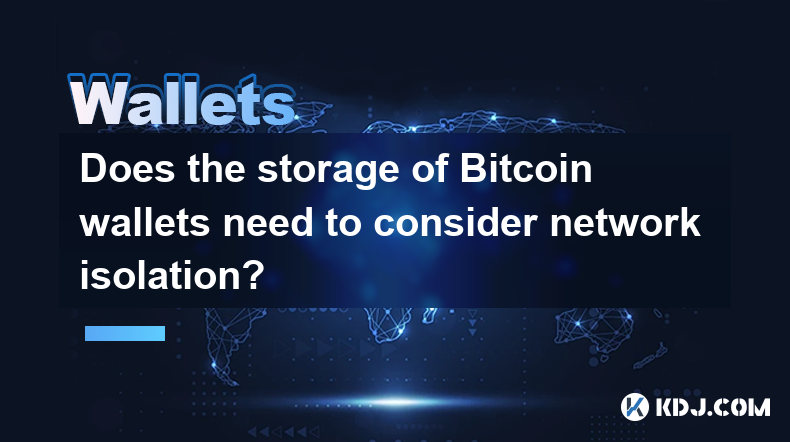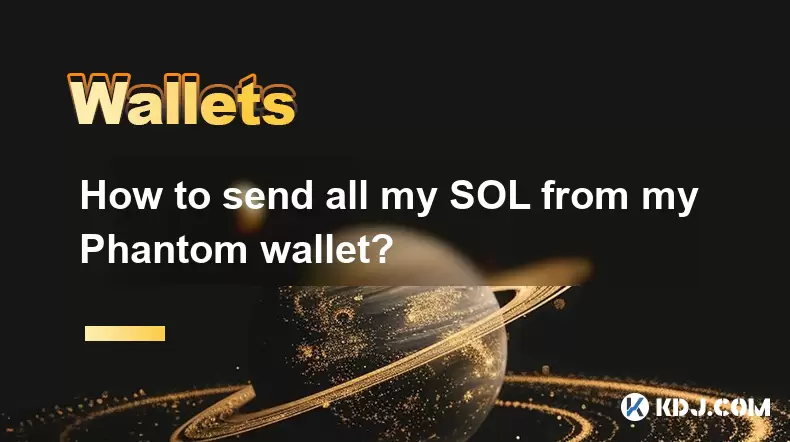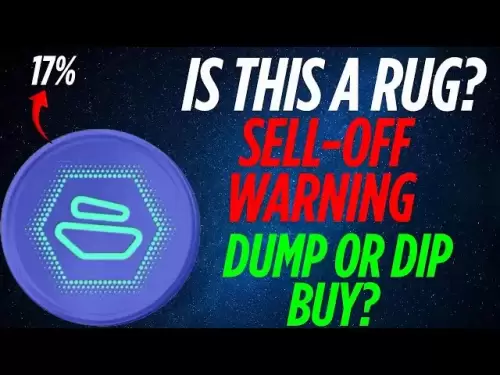-
 Bitcoin
Bitcoin $108,708.8110
0.60% -
 Ethereum
Ethereum $2,561.6057
1.91% -
 Tether USDt
Tether USDt $1.0001
-0.03% -
 XRP
XRP $2.2795
0.57% -
 BNB
BNB $662.2393
1.00% -
 Solana
Solana $153.1346
3.74% -
 USDC
USDC $1.0000
0.00% -
 TRON
TRON $0.2877
0.97% -
 Dogecoin
Dogecoin $0.1710
3.93% -
 Cardano
Cardano $0.5871
1.61% -
 Hyperliquid
Hyperliquid $39.6663
1.68% -
 Sui
Sui $2.9032
0.79% -
 Bitcoin Cash
Bitcoin Cash $496.1879
1.71% -
 Chainlink
Chainlink $13.5807
3.01% -
 UNUS SED LEO
UNUS SED LEO $9.0777
0.61% -
 Stellar
Stellar $0.2514
4.51% -
 Avalanche
Avalanche $18.1761
1.86% -
 Shiba Inu
Shiba Inu $0.0...01173
1.72% -
 Toncoin
Toncoin $2.8010
-4.23% -
 Hedera
Hedera $0.1594
3.21% -
 Litecoin
Litecoin $87.0257
-0.53% -
 Monero
Monero $319.1217
1.79% -
 Polkadot
Polkadot $3.3853
0.68% -
 Dai
Dai $0.9999
-0.01% -
 Ethena USDe
Ethena USDe $1.0003
0.02% -
 Bitget Token
Bitget Token $4.3420
-0.97% -
 Uniswap
Uniswap $7.3772
1.39% -
 Aave
Aave $286.6277
5.61% -
 Pepe
Pepe $0.0...09994
2.33% -
 Pi
Pi $0.4589
1.76%
Does the storage of Bitcoin wallets need to consider network isolation?
Network isolation, while not mandatory, significantly enhances Bitcoin wallet security by minimizing vulnerability to attacks, especially for those with substantial holdings; various methods exist, from cold storage to air-gapped systems, each offering different security levels.
Mar 23, 2025 at 03:56 pm

Does the storage of Bitcoin wallets need to consider network isolation?
The security of Bitcoin wallets is paramount, and network isolation plays a significant role in achieving this. While not strictly mandatory for all users, isolating your Bitcoin wallet from the network significantly reduces your vulnerability to various attacks. This is particularly crucial for individuals holding substantial amounts of Bitcoin or those concerned about advanced threats. The level of isolation you need depends on your risk tolerance and the value of your holdings.
Network isolation, in the context of Bitcoin wallets, refers to preventing direct connection of your wallet to the internet. This minimizes the risk of malware, phishing attacks, and other malicious software exploiting vulnerabilities in your wallet software or operating system to steal your private keys. Directly connecting to the internet exposes your wallet to a vast array of threats, including sophisticated attacks targeting specific wallet software.
There are several ways to achieve network isolation for your Bitcoin wallet. The most common method involves using a dedicated, offline computer, sometimes called a "cold storage" system. This computer is never connected to the internet except when absolutely necessary, such as for sending or receiving Bitcoin. This significantly reduces the attack surface, making it harder for hackers to access your private keys.
Another approach involves using a hardware wallet. Hardware wallets are physical devices designed specifically for storing cryptocurrency private keys. They often have built-in security features and are designed to function independently of the internet, or at least minimize their connection to it. These devices offer a significant layer of security beyond software wallets.
Even with hardware wallets, a degree of network isolation is advisable. While hardware wallets are generally secure, connecting them to compromised computers or networks can still introduce risks. Best practices often involve using a clean, regularly updated operating system for interacting with the hardware wallet and only connecting it for brief transactions.
Using a paper wallet is another form of network isolation. A paper wallet involves generating your private and public keys offline and printing them. This method completely removes the need for any internet connection for storage. However, it introduces the risk of physical loss or damage to the paper wallet. Careful storage and multiple backups are crucial with this approach.
Consider the use of air-gapped systems. An air-gapped system is a computer system that is completely isolated from any network, including the internet, local area networks, and even Bluetooth. This provides the highest level of security against network-based attacks. However, it also requires a higher degree of technical expertise to manage and use effectively. Transferring Bitcoin to and from an air-gapped system requires careful planning and execution to prevent errors.
Remember, even with network isolation, maintaining good security practices is vital. This includes using strong passwords, regularly updating your software (where applicable), and being wary of phishing scams. No single security measure guarantees complete protection, but combining network isolation with other best practices significantly strengthens your Bitcoin wallet security. Regularly backing up your private keys, regardless of your storage method, is also a critical step in protecting your investment.
Frequently Asked Questions:
Q: Is network isolation absolutely necessary for Bitcoin wallet security?
A: While not mandatory for all users, particularly those with small holdings, network isolation significantly reduces the risk of various attacks. The need for network isolation increases with the value of your Bitcoin holdings.
Q: What are the different methods for achieving network isolation for my Bitcoin wallet?
A: Methods include using a dedicated offline computer (cold storage), a hardware wallet, a paper wallet, or an air-gapped system. Each method offers a different level of security and complexity.
Q: Are hardware wallets completely immune to attacks even with network isolation?
A: While hardware wallets offer substantial security, they aren't entirely invulnerable. Connecting them to compromised computers or networks can still introduce risks.
Q: How do I transfer Bitcoin to and from an air-gapped system?
A: Transferring Bitcoin to and from an air-gapped system requires careful planning and often involves using intermediary devices and methods to securely transfer the private keys or signed transactions. This process requires significant technical expertise.
Q: What are the risks associated with paper wallets?
A: Paper wallets are vulnerable to physical loss, damage, theft, or destruction. Careful storage and multiple backups are crucial to mitigate these risks. Physical security is paramount.
Q: What are the best practices to follow even with network isolation?
A: Even with network isolation, strong passwords, regular software updates (where applicable), awareness of phishing scams, and regular backups of your private keys are essential security measures.
Q: What is the difference between cold storage and a hardware wallet?
A: Cold storage is a general term for any offline storage method. A hardware wallet is a specific type of cold storage device designed for cryptocurrency, offering additional security features.
Q: Can I use a virtual machine for cold storage?
A: Yes, a virtual machine can be used for cold storage, provided it's properly configured and isolated from any network connection. However, it requires technical expertise to ensure proper isolation. A mistake in configuration can negate the security benefits.
Q: How often should I back up my Bitcoin private keys?
A: Regular backups are crucial. The frequency depends on your risk tolerance, but it's recommended to back up your keys at least once a month and after any significant transaction.
Q: What should I do if I suspect my Bitcoin wallet has been compromised?
A: Immediately secure your wallet, change your passwords, and contact relevant authorities or cryptocurrency support services. Assess the damage and take appropriate steps to secure your remaining assets.
Disclaimer:info@kdj.com
The information provided is not trading advice. kdj.com does not assume any responsibility for any investments made based on the information provided in this article. Cryptocurrencies are highly volatile and it is highly recommended that you invest with caution after thorough research!
If you believe that the content used on this website infringes your copyright, please contact us immediately (info@kdj.com) and we will delete it promptly.
- BNB's Bullish Breakout: Riding the $600 Support Level Wave
- 2025-07-08 04:55:13
- Internet Computer, Live Stream, YouTube: What's the Buzz?
- 2025-07-08 04:30:12
- LILPEPE, Bitcoin, 2013: Meme Coin Mania or the Next Big Thing?
- 2025-07-08 04:30:12
- E-Load Super Blast: Sri Lanka's Prize Bonanza!
- 2025-07-08 02:30:13
- Pepe, Blockchain, and Presales: What's the Hype?
- 2025-07-08 03:50:17
- Crypto VC, DeFi Liquidity, and Kuru Labs: What's the Buzz?
- 2025-07-08 02:50:12
Related knowledge

How to cancel a pending transaction in Phantom wallet?
Jul 03,2025 at 07:21pm
Understanding Pending Transactions in Phantom WalletA pending transaction in the Phantom wallet occurs when a user initiates a transfer or interaction with the Solana blockchain, but it hasn't yet been confirmed by the network. This can happen due to various reasons such as low transaction fees, network congestion, or incorrect gas settings. It's import...

How to see the estimated value of my tokens in Phantom wallet?
Jul 04,2025 at 12:21am
What is Phantom Wallet?Phantom wallet is one of the most popular cryptocurrency wallets designed for the Solana blockchain. It allows users to store, send, receive, and manage various tokens built on Solana, including SPL tokens and NFTs. The wallet offers a user-friendly interface, making it accessible for both beginners and advanced users in the crypt...

How to lock my Phantom wallet extension?
Jul 03,2025 at 11:14am
What Is the Phantom Wallet and Why Lock It?The Phantom wallet is a popular non-custodial cryptocurrency wallet designed for interacting with the Solana blockchain. Supporting both browser extensions and mobile apps, Phantom allows users to store, send, receive, and stake SOL tokens, as well as interact with decentralized applications (dApps). Securing y...

Does Phantom wallet offer two-factor authentication (2FA)?
Jul 03,2025 at 09:00am
Understanding Phantom Wallet and Its Security FeaturesPhantom wallet is a widely used non-custodial cryptocurrency wallet that supports the Solana blockchain. It allows users to store, send, receive, and interact with decentralized applications (dApps) seamlessly. As security is a top priority for any crypto wallet user, security features like two-facto...

How to send all my SOL from my Phantom wallet?
Jul 06,2025 at 10:00am
Preparing to Send SOL from Your Phantom WalletBefore initiating any transaction, it is crucial to ensure that your Phantom wallet is fully set up and connected to the correct network. Phantom supports multiple networks, but for sending SOL, you must be on the Solana blockchain. Confirm this by checking the network indicator in the top-right corner of th...

What is "rent" on Solana and how does it affect my Phantom wallet?
Jul 02,2025 at 08:35pm
Understanding 'Rent' on SolanaIn the context of Solana, the term 'rent' refers to a storage fee that users pay for maintaining data on the blockchain. Unlike Ethereum, where storage costs are paid once via gas fees during contract deployment, Solana implements a recurring cost model to ensure efficient usage of network resources. This means that any acc...

How to cancel a pending transaction in Phantom wallet?
Jul 03,2025 at 07:21pm
Understanding Pending Transactions in Phantom WalletA pending transaction in the Phantom wallet occurs when a user initiates a transfer or interaction with the Solana blockchain, but it hasn't yet been confirmed by the network. This can happen due to various reasons such as low transaction fees, network congestion, or incorrect gas settings. It's import...

How to see the estimated value of my tokens in Phantom wallet?
Jul 04,2025 at 12:21am
What is Phantom Wallet?Phantom wallet is one of the most popular cryptocurrency wallets designed for the Solana blockchain. It allows users to store, send, receive, and manage various tokens built on Solana, including SPL tokens and NFTs. The wallet offers a user-friendly interface, making it accessible for both beginners and advanced users in the crypt...

How to lock my Phantom wallet extension?
Jul 03,2025 at 11:14am
What Is the Phantom Wallet and Why Lock It?The Phantom wallet is a popular non-custodial cryptocurrency wallet designed for interacting with the Solana blockchain. Supporting both browser extensions and mobile apps, Phantom allows users to store, send, receive, and stake SOL tokens, as well as interact with decentralized applications (dApps). Securing y...

Does Phantom wallet offer two-factor authentication (2FA)?
Jul 03,2025 at 09:00am
Understanding Phantom Wallet and Its Security FeaturesPhantom wallet is a widely used non-custodial cryptocurrency wallet that supports the Solana blockchain. It allows users to store, send, receive, and interact with decentralized applications (dApps) seamlessly. As security is a top priority for any crypto wallet user, security features like two-facto...

How to send all my SOL from my Phantom wallet?
Jul 06,2025 at 10:00am
Preparing to Send SOL from Your Phantom WalletBefore initiating any transaction, it is crucial to ensure that your Phantom wallet is fully set up and connected to the correct network. Phantom supports multiple networks, but for sending SOL, you must be on the Solana blockchain. Confirm this by checking the network indicator in the top-right corner of th...

What is "rent" on Solana and how does it affect my Phantom wallet?
Jul 02,2025 at 08:35pm
Understanding 'Rent' on SolanaIn the context of Solana, the term 'rent' refers to a storage fee that users pay for maintaining data on the blockchain. Unlike Ethereum, where storage costs are paid once via gas fees during contract deployment, Solana implements a recurring cost model to ensure efficient usage of network resources. This means that any acc...
See all articles

























































































